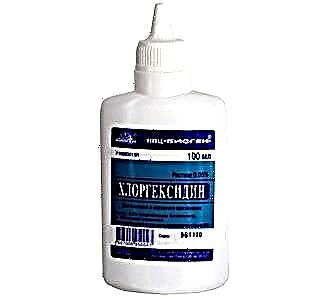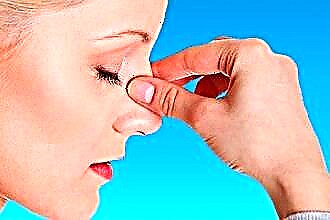Laryngitis is an inflammatory process in the throat that affects the vocal cords. The main symptoms of the disease are sore throat, hoarseness, dry cough. Despite the fact that the process is rarely accompanied by a significant deterioration in the general condition, pain in the throat is significantly pronounced, an irritating dry cough interferes with sleep and rest. The actual question is how to gargle with laryngitis, which means are preferable.
Due to the absence of systemic violations, local procedures are the priority. Gargling, compresses, rubbing, and inhalation are widely used as a topical treatment for laryngitis in adults. At the same time, gargling is the safest procedure used to treat laryngitis in adults.
Necessary requirements for procedures
 The cause of the development of a pathological process in the throat can be both bacteria and viruses. Therefore, the solutions that are used for rinsing must be effective against any pathogenic microorganisms. Since patients are worried about a dry, hacking cough, then with laryngitis, agents that help soften and moisturize the mucous membrane will be useful. They should stimulate the production of phlegm, since the transformation of a dry cough into a productive cough leads to a significant improvement in the condition.
The cause of the development of a pathological process in the throat can be both bacteria and viruses. Therefore, the solutions that are used for rinsing must be effective against any pathogenic microorganisms. Since patients are worried about a dry, hacking cough, then with laryngitis, agents that help soften and moisturize the mucous membrane will be useful. They should stimulate the production of phlegm, since the transformation of a dry cough into a productive cough leads to a significant improvement in the condition.
Thus, the solutions used for gargling with laryngitis should have the following properties:
- effectiveness against bacteria and viruses;
- softening action;
- enhance the secretory function of the epithelium.
Treatment can be long-term, therefore, the drugs used should be safe and affordable. Since gargling with laryngitis is recommended to be carried out at least 5-6 times a day, the convenience in preparation and the duration of storage of solutions also play an important role.
Traditional medicine
In the treatment of laryngitis, traditional medicine occupies a worthy place. Distribution received
- black radish juice;
- herbal decoctions (black elderberry, coltsfoot; calendula, sage, eucalyptus, etc.);
- soda and iodine solutions.
It is popular to prepare decoctions using eucalyptus, calendula, chamomile. In equal shares, in the amount of one tablespoon, a dry collection of herbs is taken, mixed and poured with two glasses of boiling water. The mixture continues to be heated in a water bath for 15 minutes. Then it is infused and filtered for an hour. The dry residue is wrung out. The remaining solution is used for the procedure.
A decoction of the bark of oak, sage and plantain is prepared in the same way. In this case, the process takes more time, since the product must be infused during the day.
Black elderberry flowers are considered indispensable in the treatment of dry cough. They are poured with a glass of hot water and infused for 2-3 hours.
After filtering, the resulting solution is ready to use for laryngitis.
A popular remedy is aniseed decoction. For this, 2 tablespoons of dry matter are poured into an enamel container, filled with a glass of purified cold water and put on a slow fire. The mixture should boil for 15-20 minutes. After straining, add a teaspoon of honey to the broth, stir. The product is ready to use.
Black radish juice can be obtained by grating the root vegetable on a fine grater, waiting about an hour for the liquid to drain, and then squeezing out the pulp. The resulting freshly squeezed juice can be used orally one tablespoon after a meal, or prepare a gargle from it. To do this, 50 ml of juice must be diluted in 100 ml of warm boiled water.
To soften the throat, rinsing with an alkaline solution works well.
The simplest recipe consists of a teaspoon of baking soda and a glass of water heated to body temperature. To enhance the effect, add 2-3 drops of an alcoholic solution of iodine to such a solution, which is a strong antiseptic. Having an irritating effect on the mucous membrane, in low concentrations iodine solution promotes the formation of sputum. However, an increase in the concentration of the solution can have the opposite effect, leading to significant irritation and dryness of the mucous membrane.
Pharmacy medicines
For gargling with laryngitis in adults, use pharmaceutical solutions:
- Iodinol;
- Chlorophyllipt;
- Chlorhexidine;
- Miramistin.

The various properties of iodine are used in pharmaceutical products. Iodinol contains an aqueous solution of iodine and alcohol. According to the instructions, rinsing with laryngitis involves the use of 20 ml of the drug, which is stirred in a glass of water. When using this remedy, it is necessary to take into account the possible individual intolerance to iodine. The reaction is manifested by lacrimation, runny nose, skin rash. When these symptoms appear, rinsing should be stopped, and the mouth should be rinsed with plenty of warm water.
In a similar way, a 1% alcohol solution of Chlorophyllipt is used for gargling the throat, in which the main component is eucalyptus leaves. This evergreen plant has a detrimental effect on bacterial pathogens, especially staphylococci, which must be taken into account when referring to its choice for the treatment of inflammatory processes in the throat. After diluting a tablespoon of the drug in a glass of water, gargle the throat 3-4 times a day.
Chlorhexidine and Miramistin are used undiluted for gargling. These aqueous solutions have a pronounced antiseptic and disinfectant effect, which makes it possible to use them for various pathological processes in the oral cavity.
When using Chlorhexidine, a thin film is formed on the surface of the mucous membrane, which makes it possible to lengthen the duration of the drug's action up to 5-6 hours, reducing the frequency of rinsing to twice a day.
Gargling with laryngitis in adults has some features, compared to the procedure for other pathological conditions. They are as follows:
- The procedure should be carried out as often as possible, if possible, every hour;
- The solution used for this should be at a comfortable temperature, within the body temperature;
- The means used must be alternated;
- The concentrations of the solutions used must comply with the instructions. Otherwise, they can irritate the mucous membrane, which will aggravate the course of the disease.




